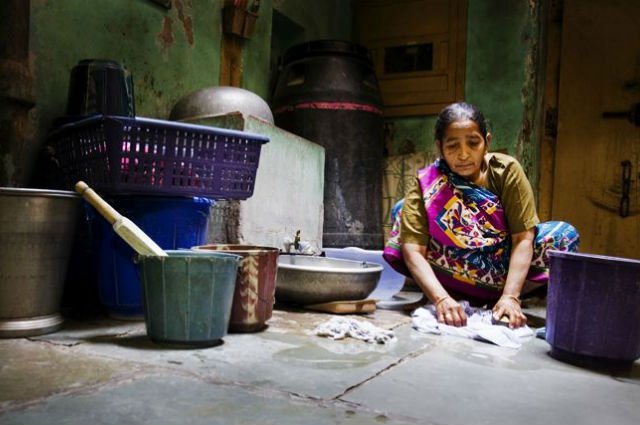Why in news?
The Union Minister for Labour and Employment flagged off the first-ever All India Survey on Domestic Workers (AISDWs).
What is it?
All India Survey on Domestic Workers (AISDWs)-
AISDW is aimed at estimating the share of domestic workers at both, National level and State-level.
The survey will help to provide a percentage distribution of domestic workers with respect to Live-in and Live-out, formal and informal employment, Migrant and Non-Migrant, their payments and other socio-economic characteristics.
The survey will also include data related to the number of households with live-in and live-out domestic workers and the average of workers employed by various kinds of households.
Survey on Domestic workers is being conducted by Labour Bureau.
What is need of such Survey?
Domestic workers constitute a significant part of total employment in the informal sector. However, there is a paucity of data on the magnitude and prevalent employment conditions of Domestic Workers. Even during pandemic it was the need of hour.
Domestic Workers-
A domestic worker is a person who is employed to carry out household chores in the employer’s home and to perform cleaning work in the house and if the frequency of visits by the worker to the house is at least 04 days in the last 30 days and the goods or services produced by the worker is consumed by the members of the household against payment either through cash or kind.
According to International Labour Organization (ILO), Domestic workers are those workers who are performing work in private households. DWs provide direct and indirect care services.
According to International Labour Organization (ILO) estimate, India has at least four million domestic workers and Most of them belong to vulnerable communities – Adivasis, dalits, landless OBCs. Even most of them are migrants and out of which a significant number is of women.
Issues faced by domestic workers in India-
Abuse, Harassment and Violence: As per, the International Domestic Workers’ Federation, some domestic workers have to face multiple forms of violence such as physical abuse, intimidation, threats, bullying, sexual assault, harassment, being provided poor-quality food and a lack of privacy.
Live-in domestic workers face more isolation, less privacy and more limited mobility, work longer hours, and receive a larger share of payments in kind. There living conditions are frequently poor. Even they are also more vulnerable to physical or sexual abuse by employers.
Poor Earnings/Wages: Domestic workers are not covered under formal sector, so they do not have organised social network. Due to this they have poor bargaining power.
- ILO Bureau of Statistics Database shows, the data on wages in domestic work is available for a few countries. It shows that women employed in domestic work get lower payments than women working in most other jobs, and lower wages than men working as domestic workers.
Invisible contribution in the economy: In India, Domestic workers are the third-largest category of workers after agriculture and construction. Urbanisation is leading the migration of workers and there is a rise in the number of domestic workers.
Covid-19 impact on domestic workers: According to a survey of Self-Employed Women’s Association (SEWA), nearly 60% workers were not paid during the lockdown. Due to which they had to rely on informal loans, which leads to indebtedness and also affects the health and well-being of the family.
Way Forward-
Domestic workers are exposed to many of injustices, distress and in dignities due to the absence of legal safeguards, welfare measures and other provisions. There is a need of a comprehensive, uniformly applicable national legislation which can provide better termsand conditions for domestic workers. Domestic workers also deserve proper care, protection and measures for empowerment in modern society on the basis of humanitarian considerations.
International Labour Organization (ILO)-
The International Labour Organization (ILO) is a United Nations agency deals with labour related issues, particularly international labour standards, social protection, and work opportunities for all.
ILO’s 189th convention: It mandates that the domestic workers be given daily and weekly rest hours and their wages must meet minimum wage requirement. India is a signatory of this convention, also known as Convention on the domestic workers, but has not ratified it yet. India is a founding member of the International Labour Organization (ILO).
Headquarters- Geneva, Switzerland.
Labour Bureau-
It is responsible for the examination, collection and publication of statistics and related information on salaries, earnings, productivity, labour turn-over, industrial relations, working and living conditions and assessment of working of various labour laws etc.
